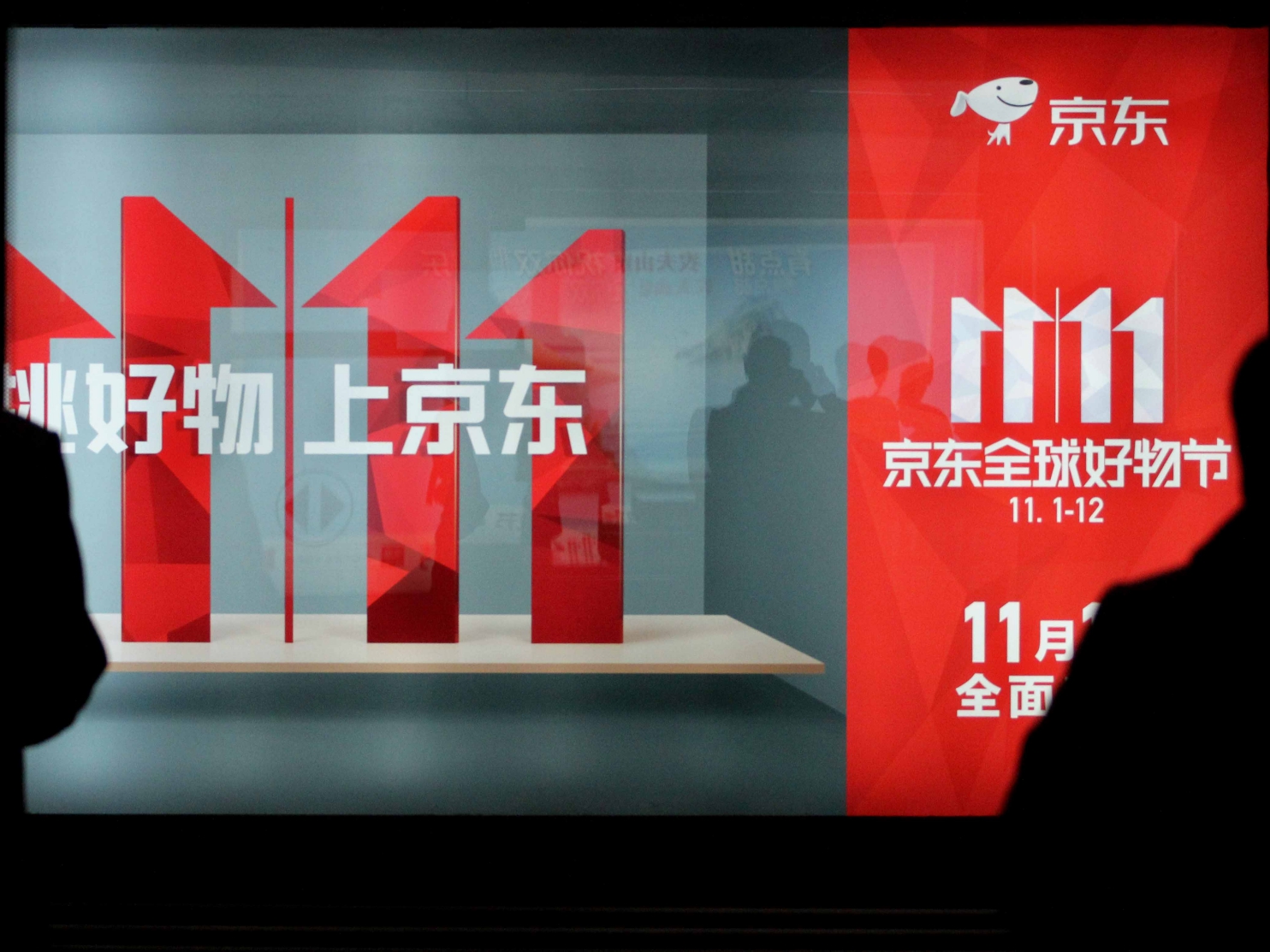China’s second largest e-commerce firm just showed Alibaba has serious competition

Alibaba invented China’s biggest shopping day — 11/11 aka Single’s Day — and it dominates the headlines with record sales year-on-year, but another company just stepped out to remind us that others are busy trying to close the gap.
JD.com, the perennial challenger to Alibaba’s e-commerce empire in China, just revealed its 11/11 figures for the first time. While not as high as Alibaba’s 163.8 billion RMB ($25.3 billion) the company did process an impressive 127.1 billion RMB in GMV, which works out to around $19.14 billion.
There’s no direct comparison but the figure is a touch above Alibaba’s 2016 11/11 sales GMV of RMB 120.7 billion. The figure is also higher than the $17.6 billion that JD.com grossed for its own 6/18 sales event — which commemorates the date of its founding — although that bonanza lasts for 18 days rather than just one like Single’s Day.
JD.com was previously fairly guarded over Single’s Day data — instead choosing to talk up percentage growth — but with this announcement today it has reminded people that it is indeed a close challenger to Alibaba.
On consumer e-commerce marketshare, iResearch puts JD.com’s reach at around 25 percent, while Alibaba is said to have just over 55 percent but there’s more to it than that.
The main difference between the two is that Alibaba operate’s a marketplace approach with its e-commerce businesses, whereas JD.com opted for an Amazon-like vertical approach to sales.
There is also a disparity in size.
Alibaba sits on the New York Stock Exchange with a market cap of $477 billion. JD.com, meanwhile, is listed on the NASDAQ and valued at around $57 billion. Still impressive, for sure, but a small fraction of Alibaba.
Nonetheless, long-time Alibaba CEO Jack Ma noticed the potential of the rival early on.
The Information reported this week that back in 2011 Ma wanted JD.com founder Richard Liu to open a store on Alibaba’s platform to avoid the potential of direct competition. Liu rejected the offer has gone about making his company, which was then less established, Alibaba’s chief rival through a different approach to e-commerce, and by embracing technology such as drones and robots faster.
Featured Image: VCG/VCG via Getty Images/Getty Images (IMAGE HAS BEEN MODIFIED)
Published at Sat, 11 Nov 2017 18:21:02 +0000





